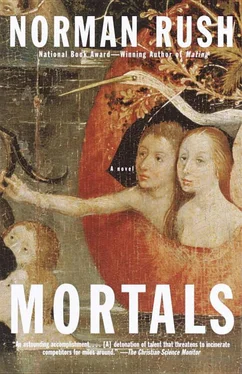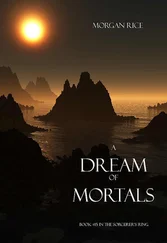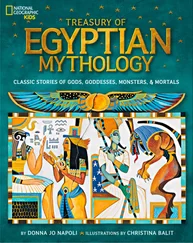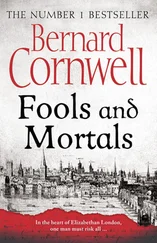It was time to go. Ray was asking himself, in the routine normal for setting off on a trip, if he had everything when he realized that he had nothing, no personal effects, no papers, nothing but the clothes on his body and his bundle of Strange News . And there was no money. Koevoet had found the money cached in the Cruiser and done whatever they had done with it. And he had destroyed his own passport. And where his driver’s license was he had no idea. Morel had his medical satchel with nothing but odds and ends in it. He didn’t think Morel had been able to retrieve his wallet. He would ask him.
It was a miracle that the keys to the Cruiser had been located, although it could have been hot-wired. He knew how to do that. He half wished he’d had the opportunity to show it. But this was all right.
Kerekang and Kevin came with them to the Cruiser. Ray had an irresistible impulse to get into the Cruiser, to be sitting in it, to be asleep in it. He was tired of squatting and sitting on the ground and leaning against things. He got into the Cruiser.
There was a consultation over routes. Kerekang was directing a torchbeam onto a map spread open on the front driver’s-side fender. Ray felt he needed to be more participatory. He slid along the seat and opened the driver’s-side door. Why had it been assumed by all and sundry, Ray wondered, that Morel would be the driver and the maestro of the trip back? Ray felt his face. His appearance was probably against him, his beard. Morel had a very light growth of beard. Ray’s knee was swollen. It looked uninspiring.
Now there was discussion about provisions and fuel. And then that was over and Ray had to move back to his side of the cab as Morel climbed in and got behind the wheel.
Kerekang came around to his side and stood looking at Ray.
Kerekang said, “Don’t get too old before I see you again.”
“I won’t. When you get to the Republic, how will I find you? Wait, I don’t know where I’ll be. Wait, where will you try to stay?” Ray was full of anxiety. He wasn’t thinking creatively about setting up a contact point. He could have Kerekang call his house in Gaborone, but how long he was going to be living there was the question. That was a problem. He couldn’t think.
He said to Kerekang, “Call me or have someone call me at my house. We’re in the directory. But I don’t know how long that will work. But try that. And I guess I can leave a forwarding number for you or anyone else, if I, if I have to, which I am going to have to do for after I leave.”
Kerekang said, “I can go to a friend in Hillbrow.”
Ray said, “That’s good. That’s good. I’ll see you. I’m serious about a school …”
Kerekang said directly to Ray, “I will use the directory to reach your house.”
Morel said to Ray, “What school?”
Ray ignored the question.
“I will see you, rra,” Kerekang said to Ray.
Ray made himself believe it.
36. They’re All Dust in the Wind
Ray was rehearsing as he drove. Morel had turned the driving over to him when they’d reached Lobatse, after a tense wrangle. But Ray had been insistent. He had his own reasons for wanting to be at the wheel when the moment of arrival came. Lobatse was only forty kilometers from Gaborone, so there was some imposture involved in his insistence on arriving in the driver’s seat. Morel had driven every inch of the way to Lobatse, all the hard driving, three days of it in the bush, which could have been more if they hadn’t diverged from their objective, Mabuasehube, when it seemed a total formality, and come straight over to Route 14. There had never been any sign of helicopters. They had ceased to believe that those represented any danger after the first day.
It was a question of appearances. It was his vehicle, or at least it had been assigned to him. And he had been adamant about being the one to drive it into his own driveway.
It was early evening. They would arrive while it was still light. What he meant was that he would arrive while it was still light, unless he could do something about it. Try it, he said to himself.
Ray said, “I can drop you off first, at your place.”
“No, I want to see that you get there safely. You’re a wreck.”
Ray tried not to laugh.
“I’m fine,” Ray said, which was a lie because his knee, heavily bandaged as it was, was hurting fiercely and there was some question as to how long he could keep using that leg, using the brake. The brake was working stiffly.
He was sick of negotiating with Morel. It was almost over. And they had arrived at some decent compromises about the homecoming, the main one being that all Iris knew was that they were all right and that they were both on the way to Gaborone. And that information had come to her in the form of a radiophone message from the district council office in Kanye. And it had been the only information that she would receive until they arrived in the flesh, and the pretext that justified that was that the regular telephone service was out, in the whole north and south of the country, out, which it had been, intermittently. So the cruelty of not knowing that both of them were alive had been put to death.
Ray hated Wagner, but he loved some of his music, like the homecoming music from Tannhäuser . He sang it, “Once more, dear home, I with rapture behold thee … And greet the fields that so softly enfold thee …” That was all he had. He couldn’t remember what the story was, where Tannhäuser had been and how long he had been there that made coming home so sweet. He sang it again. The next line, something about Tannhäuser’s native staff, escaped him. But that was all right.
“Please don’t sing anymore,” Morel said.
“Okay,” Ray said.
This stretch of the road, approaching Ramotswa, the three-quarters mark to Gaborone, was pleasant. There were some rather abrupt hills on the left, green, scrub-covered. In fact the verdure on the hills had the tight, dense look of the hair of Africans, except that it was green, of course. That was not an observation he could do anything with. The traffic was light. He had to be careful to avoid the slow-moving donkey-pulled wood carts, not carts but the back-ends of derelict trucks cut away and used as wagons. They passed a eucalyptus plantation. He forgot what Kerekang’s objection to eucalyptus was, but it was severe, it was a bad importation, it didn’t belong in Botswana.
He wanted Morel to be out of the scene when he got home. And now that he was driving he had it in his power to just drive to Morel’s place and tell him to get out, give him an ultimatum despite the fact that it wasn’t what they had agreed on. It could be done but it couldn’t be done. Morel would resist. And she would be expecting both of them, naturally enough, since she was the one who had dispatched Morel off into the red rock wilderness to find him, which meant that it might be logical for Morel to deliver him home. It was the completion of a commission.
Ray supposed it could be managed. He would make the scene brief. It would be difficult and complicated because he would have to keep his eye on the doctor to see that no hand signals or special glances were sent in Iris’s direction. He would keep it brief and then he would send Morel away. He would let him take the Cruiser to his place. He would give a reason why that would make sense. He didn’t know what it was. But he would make the homecoming scene just the last act in the sequence of scenes in which he had been keeping his eye clapped to Morel all the way back and especially since they had gotten onto the tarred roads, passing through real towns. He had followed him everywhere to see that he didn’t get hold of a phone or find some other way to send his own separate message of warning to Iris, some way Ray couldn’t even imagine. He had stood there in the washroom at the district council office while Morel shat and brushed his teeth and cleaned himself up, taking his own sweet time about it. He had shadowed him at every stop they made. The homecoming would just be a variant and he thought he could manage and get Morel out of there and away and then the fun could begin.
Читать дальше












